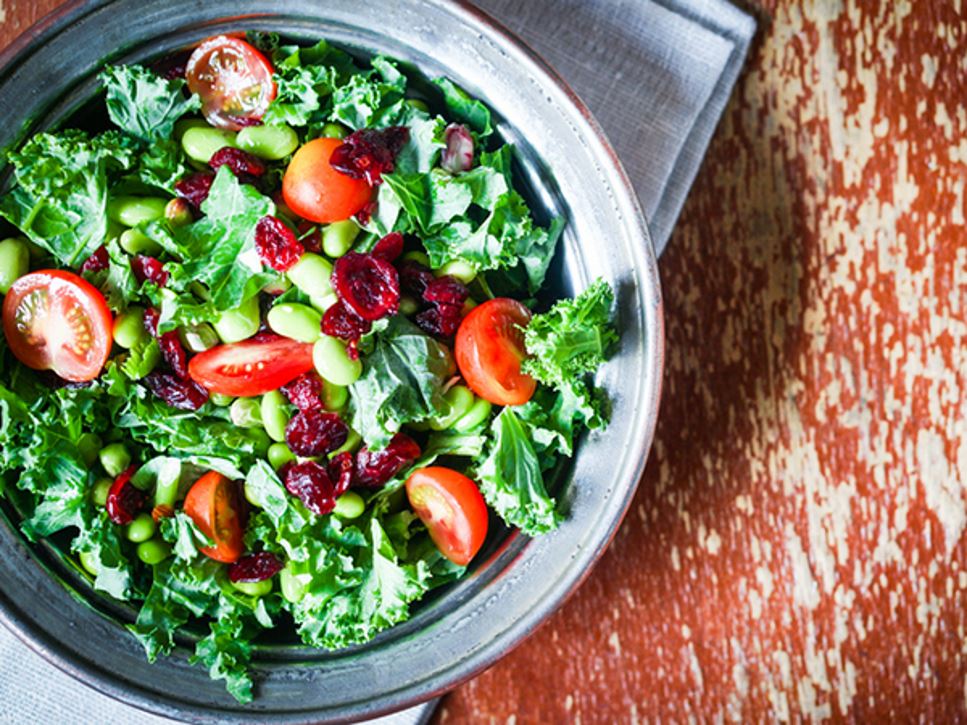No matter which vegetarian eating style you follow, it is important to choose a variety of foods including whole grains, fruits, vegetables, legumes, nuts and seeds. This can help ensure you are meeting your nutritional needs each day.
Calcium
Vegetarians should consume a variety of calcium sources to meet daily requirements.
Dairy products are a rich source of calcium. If your diet does not include dairy products, calcium can be obtained from plant-based foods, but the amount of calcium that the body can absorb from these foods varies. Here is a list of vegetarian-friendly sources of calcium:
- Low-fat or fat-free milk, yogurt and cheese
- Fortified plant-based milks such as soy or almond beverages
- Fortified ready-to-eat cereals
- Calcium-fortified juice
- Calcium-set tofu
- Some leafy green vegetables including collard greens, turnip greens and kale
- Broccoli
- Beans including soybeans, chickpeas and black beans
- Almonds and almond butter
Iron
Vegetarians should consume a variety of iron sources to meet daily requirements. Consuming a source of vitamin C (such as citrus fruits, bell peppers and tomatoes) at each meal helps increase iron absorption.
Sources of iron include:
- Fortified breakfast cereals
- Soybeans
- Some dark leafy greens including spinach and chard
- Beans
- Nuts, such as almonds and cashews
Protein
Protein is found in plant foods as well as animal foods. Your body can get adequate protein from plant sources if you eat a variety of foods and enough calories throughout the day.
Vegetarian sources of protein include:
- Legumes such as beans, peas and lentils
- Whole grains
- Soy products
- Nuts and nut butters
- Dairy products
- Eggs
Vitamin B12
B12 is found in all foods of animal origin, including eggs and dairy products. An adequate intake of vitamin B12 can be a concern for many vegetarians, especially vegans. For those who follow any vegetarian style of eating, choose foods fortified with vitamin B12 and talk with your health care provider about whether a vitamin B12 (cobalamin) supplement is right for you.
Vegetarian sources of B12 include:
- Vitamin B12-fortified foods, including fortified nutritional yeast, soy milk, meat substitutes and ready-to-eat cereals (be sure to check the label, as not all products on the market are fortified with vitamin B12).
- Dairy products
- Eggs
Vitamin D
Few foods are naturally high in vitamin D, but many dairy products in the U.S. are fortified with vitamin D. People who choose not to eat dairy products and who do not receive exposure to sunlight on a regular basis should discuss the need to take a vitamin D supplement with their health care provider.
Vegetarian sources of vitamin D include:
- Eggs
- Vitamin D-fortified soy milk, cow's milk, orange juice and ready-to-eat cereals
- Mushrooms exposed to UV light
Information provided by the Vegetarian Nutrition Dietetic Practice Group of the Academy of Nutrition and Dietetics.
References
Find a Nutrition Expert
Looking for credible nutrition information and recommendations? The Academy of Nutrition and Dietetics' network of credentialed food and nutrition practitioners are ready to help!

